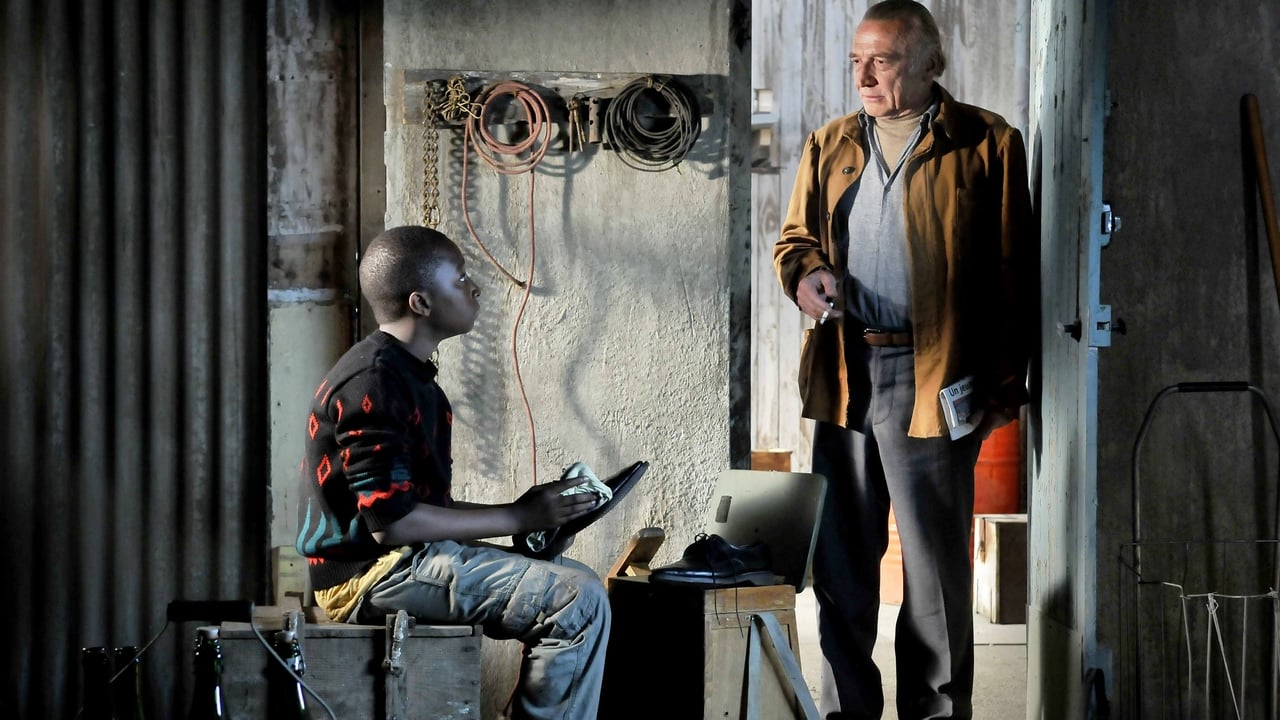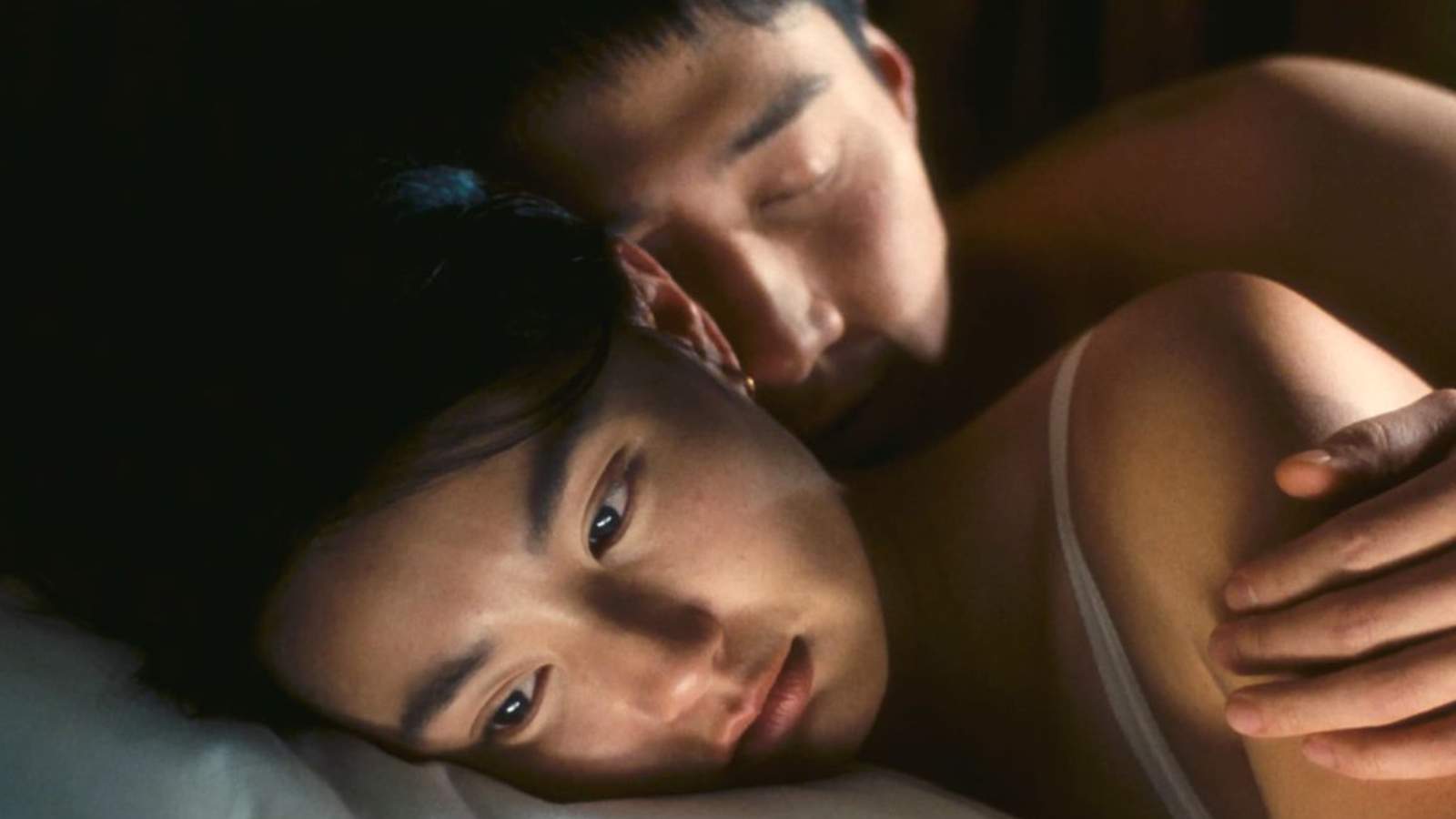Revolutionary Love: Films About Love Against All Odds
Love isn’t just about promise and security – sometimes, it’s fever and unrest, defiance and transformation. Sometimes, it emerges between people divided by ideology, social class, or entirely different worlds. Other times, it becomes a space of untamed desire, of breaking conventions, of tension between power and vulnerability.
From searing queer passions and tales of immigrants in search of a future to political satires about power dynamics, these films don’t offer comforting love stories – they tell stories that liberate, ignite, and shake us to the core.
Flammes (Adolfo Arrieta, 1978)

Exoticized firefighters, carnal desire as the driving force of fiction, and a queer gaze wrapping it all in an aura of spirited enigma with kitsch undertones? No, I’m not thinking of João Pedro Rodrigues’ recent Fogo-Fátuo, but rather of a more intense predecessor, made at a time when such playful subversions hadn’t yet become a staple on screen. I’m talking about Flammes, a film that begins as a psychoanalytic-psychedelic fairy tale (a frightened girl under floral sheets, shadowed by a firefighter gleaming mysteriously in the moonlight), continues as a tale of pulsion urges (the girl, now a teenager, lurks around the fire station), and ends in a Buñuelian anticlimax.
Its director, Adolfo Arrieta, a Spaniard who found refuge in the Parisian underground, had worked with the saturnine Jean Eustache, collaborated with the artists around Paul Vecchiali’s Diagonale group, and took part in all the cool, fiercely independent artistic endeavours of the time. With its pervasive silence (the sublime scene where the family sits at the dinner table, nobody speaking, only the discreet chirping of a cricket filling the night), with its postures heralding a cinema of desire, Flammes feels like a fever dream dissolving in the morning light. Starring the aptly named Dionys Mascolo (Marguerite Duras’s former partner), the film anchors the presence of bodies, accents, and faces (Pascal Greggory, stunningly young), only to then envelop them in the quadrature of epiphany. (Victor Morozov)
Flammes is available on MUBI.
Le Havre (Aki Kaurismaki, 2011)

There are countless films I could have written about. Naturally, it was hard to choose, but the main reason I settled on Le Havre is that I recently recommended it to some friends in conversation, and it still feels incredibly relevant today, nearly 15 years later.
In short, a shoe polisher discovers an immigrant child in the French port city of Le Havre and decides to take him under his wing. The director approaches the subject – so pressing and difficult even today – with humour and tenderness, turning it into a digestible story. The young boy is hidden by the protagonist from the authorities, desperately trying to prevent his deportation. As the film unfolds, we learn that the protagonist’s wife is gravely ill and hospitalized.
A warm film about compassion, solidarity, love, and sacrifice that shows both how cruel people can be and how good they could be. (Laura Mușat)
Le Havre is available on MUBI.
Comrades: Almost a Love Story (Peter Chan, 1996)

No one is more synonymous with love stories than Maggie Cheung – throughout her career, the Hong Kong actress has taken us through every imaginable spectrum of love: low, high, funny, heartbreaking, ghostly, fantastic, possible, impossible, and beyond. If that recommendation isn’t enough, you have plenty of other choices (Green Snake, dir. Tsui Hark, 1993, is a must-watch).
Director Peter Chan has also given the world an outstanding list of romantic comedies (don’t miss his gender-bending He’s a Woman, She’s a Man, 1994), but nothing quite leaves a lump in your throat like Comrades: Almost a Love Story (1996), as bittersweet as its title suggests.
Following the love story of two mainland Chinese immigrants in Hong Kong, Li Qiao (Cheung) and Li Xiao Jun (Leon Lai), Chan’s film is less of a rom-com and more of a social investigation disguised as an emotional romance. The unexpected love between two entirely different individuals quickly becomes inevitable – how could anyone resist the candid and hapless Xiao Jun, newly arrived in the city, unable to speak the language, stumbling at every turn yet eternally optimistic?
But Xiao Jun’s awkwardness isn’t just a sweet character quirk; it’s a symptom of immigration struggles. Comrades: Almost a Love Story is about crisis and precarious living conditions, discrimination and isolation, about working as a McDonald’s cashier sold as the beacon of the capitalist dream in the midst of a stock market crash.
Can the soulmates’ love survive when everyday life has more urgent concerns and desires? Chan is a romantic, and love shines through charmingly (or does it?) despite all misfortunes, but Comrades: Almost a Love Story is first and foremost a study of closeness – both physical and spiritual – in a vast city, as dense as it is unwelcoming. The big question here isn’t “Do they love each other or not?” but rather whether like attracts like. (Dora Leu)
Swept Away… by an Unusual Destiny in the Blue Sea of August (Lina Wertmüller, 1974)

This wild film by Italian director Lina Wertmüller comes from an era when cinema was called upon to unflinchingly reflect political struggles and ideological clashes. In the postwar decades, Italy was caught in the whirlwind of confrontations between tradition and modernity, consumerism and poverty, a Christian democracy with certain fascist tendencies, and a left captivated by communism.
Gennarino Carunchio (Giancarlo Giannini) is a poor sailor whose job is to serve a group of wealthy elites on a yacht cruising through the Mediterranean. Raffaella Pavone Lanzetti (Mariangela Melato) is the most obnoxious of the industrialists’ wives on board – she talks loudly and incessantly, seizing every opportunity to humiliate the servant-sailors (at one point, she scolds Gennarino for overcooking the pasta). What she doesn’t yet know is that she will soon find herself stranded on a deserted island with the very man (handsome, no less) she has been degrading.
Here, the balance of power shifts dramatically – all social conventions and hierarchies collapse. It’s an utterly atypical romance – violent, aggressive – a politically charged allegory that is as unsettling as it is thought-provoking. A film deeply rooted in its time, yet one that remains an excessive and strangely captivating spectacle. (Ionuţ Mareş)
Swept Away is available on Apple TV și hoopla.
Ali: Fear Eats the Soul (Rainer Werner Fassbinder, 1974)

Happiness isn’t always fun. Love should be a refuge, but for Emmi and Ali, it becomes a battlefield. Emmi is a single woman in her 60s, while Ali, nearly 40, has emigrated from Morocco to Germany for work – their love and marriage defy the hostility of their neighbours, the venomous whispers, and the prejudices of a society steeped in racism.
In one of the film’s most devastating moments, Emmi seems to collapse under the weight of this new reality – the realization that the world no longer looks at her the same way, simply because she dared to love. It’s a moment that lays bare the true loneliness of existing in a world that refuses to tolerate you.
Ali: Fear Eats the Soul is a deeply moving and emotional story about the courage to love despite the obstacles – and the fear that creeps into the soul when you feel like you no longer belong anywhere. (Anca Vancu)
Ali: Fear Eats the Soul is available on MUBI.
An article written by the magazine's team
